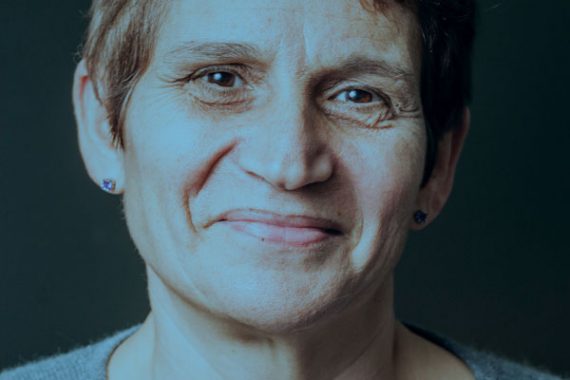GPs shouldn’t have to face the GMC in the midst of mental illness

The national GP health service (GPH), which opens in January 2017, is long overdue. GPs suffer from mental health problems at a higher rate than the rest of the population but often have trouble seeking help. However, this mental health service, whilst important, is not enough – the whole system needs to change to help GPs and other healthcare professionals with mental health problems.
Would it not be better to allow doctors to get better before passing through an adversarial system?
Importantly, we should reduce the need for doctors with mental health problems to have to go through a stressful GMC fitness to practise process while they are ill, but give them space to recover first. And since mental illness is often the trigger for the process in the first place, the whole procedure may be unnecessary after their recovery.
Disciplinary processes
Over the last nine years, many of the doctors attending the NHS Practitioner Health Programme (PHP), a London based confidential service for doctors and dentists with mental health problems which I run, have been involved in disciplinary or investigatory processes, such as GMC procedures or Trust Disciplinary Processes. The mental illness they present with might have been triggered by this involvement or, more often in our experience, their mental illness has led to the referral to the GMC.
Whether a doctor with a mental illness should or must be referred to the GMC is a grey area, and when done, it is almost always under cover of ‘patient safety’ reasons – although in our experience no doctor has harmed a patient due to their own mental illness.
Some doctors who admit to having a depressive illness might be told (incorrectly) that they have to refer themselves to the GMC. The more severe the illness the more likely that this advice is given to the doctor. Not infrequently the doctor is referred by their employer or other outside body on the basis of their mental illness. Finally, there are doctors referred to the GMC for performance issues, for example shouting at staff, coming in late, appearing tired and un-engaged, where following assessment the performance problem is almost certainly related to their mental state and undiagnosed mental illness. This category is especially the case for doctors trained overseas.
It serves no one well to have sick doctors pushed through an adversarial system such as a fitness to practise process. At worst it can lead to a worsening of their mental health problem and even suicide, and it acts as a disincentive for doctors in need to disclose they are having problems.
GMC reform
Over the years PHP has built up very good relationship with the GMC and we have been impressed by the work that they are doing to reduce unnecessary stress on doctors passing through their processes. They have conducted a review of doctors who have killed themselves whilst undergoing GMC investigation, and have commissioned Professor Louis Appleby to recommend steps that can be implemented to reduce the burden on doctors and at the same time maintain GMC standards and protect patients, for example recommending that the GMC spares doctors with mental health issues from a full investigation.
The GMC has also re-written almost all their material which is sent to doctors and revised their processes to ensure that they do not inadvertently lead to serious distress. For example they have minimised the number of letters sent and ensured letters are not all sent to arrive on a Saturday morning when doctors might be alone. The GMC has also funded the BMA to provide a support service for doctors going through GMC processes.
More needs to be done
However, there is still more that can be done. At present a mentally ill doctor will be expected to present themselves, often whilst still in the acute stages of their illness for assessment by two GMC appointed psychiatrists, and in the process disclose personal and painful information solely for the purpose of this assessment and not for their own needs. They will also need to present themselves, whilst still unwell, to an Interim Orders Panel where a decision might be made to suspend a doctor for many months ahead, denying them of income and purpose. In addition, the sick doctor will have to respond to GMC and other legal correspondence, attend meetings with their legal representatives and/or Trust hierarchy. All of this whilst still unwell.
Not surprisingly in our experience doctors faced with this situation become more unwell and find it hard to focus on their own mental health needs. Instead they have to down play their distress and mask their illness as otherwise they risk sanctions for ‘not being better’. A broken leg in a doctor does not heal any quicker than in a non-doctor, nor does their depression, their psychosis, or indeed their addiction (though they have better outcomes in terms of long term abstinence). Would it not be better, as with court diversion schemes, to allow doctors to get better, seek confidential help, give them the time and support to recover before passing through (if needed at all) an adversarial system? As long as they and their patients are safe, this would be kinder and more beneficial for all.
Professor Clare Gerada is a GP in south London, partner in the Hurley group and medical director of the practitioner health programme
The fee for this piece has been donated to The Louise Tebboth Foundation, established in memory of Louise Marson (nee Tebboth), a Bermondsey GP who took her life in January 2015. The Foundation aims to provide financial assistance to projects and services which support the mental well-being of doctors in England and Wales and initiatives assisting the bereaved families of doctors who have died by suicide.









